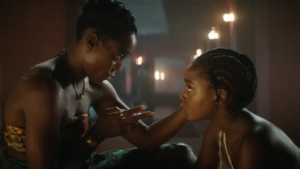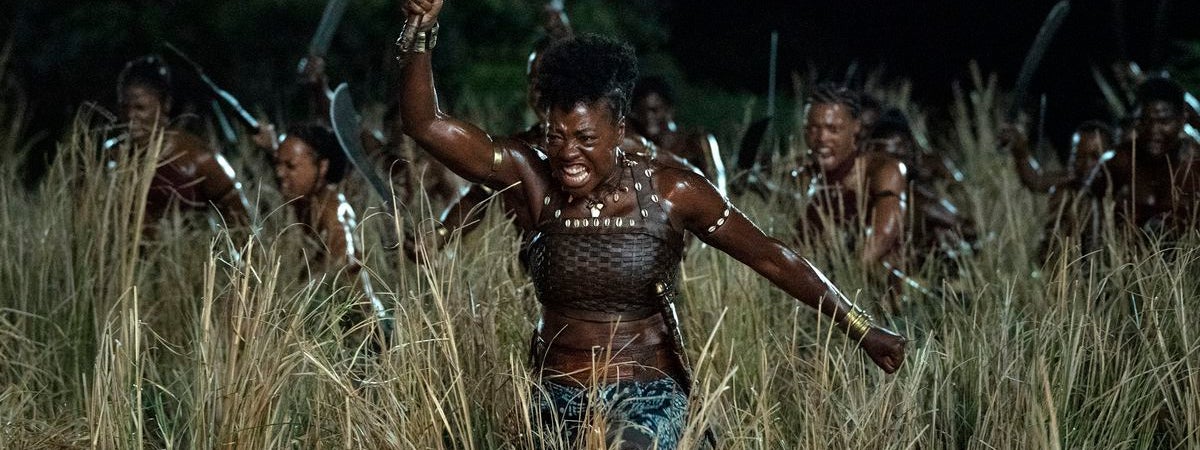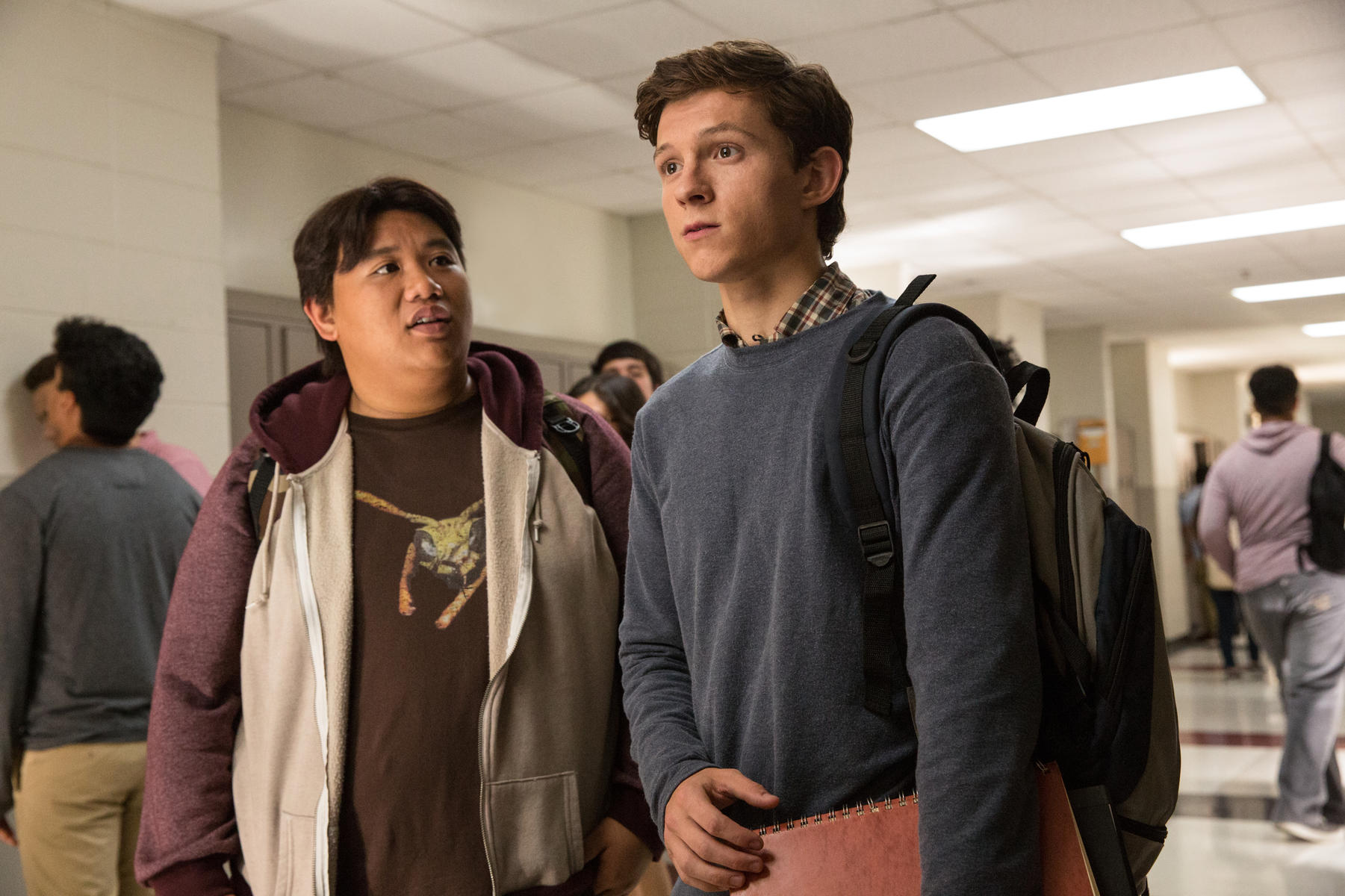Get used to the phrase “like Viola Davis in The Woman King.” You’re going to hear it often. For years. You’re going to hear in the context of film and in situations that have nothing whatsoever to do with film. What is our current societal standard for badassery among middle-aged women? JLo at 50? Oprah? A Karen calling for a manager? Whatever it is; it’s going to change … especially among women of color. I predict a time in the very near future in which “like Viola Davis in The Woman King” will be the standard bearer for every time you want to describe a middle-aged woman owning a situation.
That’s how iconic this role is. It’s iconic on the level of Tom Hanks in Forrest Gump. Yes … it is.
The Year is 1823; slave trade is booming and the West African kingdom of Dahomey is protected by an all-women tribe of warriors, the Agojie. The Woman King wastes no time in showing us who the Agojie are and what they can do. Led by General Nanisca (Davis) , the Agojie raid a nearby village of their adversarial neighbor, the Oyo, who have stolen Dahomey tribespeople for the purpose of selling them to slavery. Two minutes in and we’ve already got Amazons, slaves, and bloodshed. For some, I imagine this picture is already a hit.
The film isn’t actually about Nanisca so much as an Agojie plebe, Nawi (Thuso Mbedu). Thuso Mbedu is currently 31; she looks like she’s 12 and her character Nawi is 19. Nawi has already proven a-nawi-ng to all the menfolk around, so dad had no choice but to give her up to the army of women. MAGA ain’t gonna like … well, let’s face it, MAGA ain’t gonna like any of this (as one can already detect by the deliberately southern-skewed imdb rating), but I’m guessing the first major thing MAGA would object to is Nawi’s arranged-marriage refusal. MAGA seems to have a big issue with women who defy over-inflated middle-aged men. Gee, I wonder why? And Nawi makes it known early on that she’s nobody’s property.
Off to military school you go then, young man, er, woman.
The Agojie do not rule the Dahomey, but Nanisca has the king’s ear and consistently persuades him not to engage in slave trade. The Dahomey are not only much smaller in population than the Oyo; the Oyo have gotten wealthy selling rivals to slavery, which is a serious dick move. Hence, this  is one of the better causes to fight for. Not only do we care about Nawi, her fellow plebes, and the Agojie; we know the penalty for failure to learn their new trade properly: it’s either death or slavery. This makes the film focus on the strength of Nanisca –and I can’t emphasize enough what a transformative role this was for Viola Davis- and her main lieutenant, Izogie (Lashana Lynch).
is one of the better causes to fight for. Not only do we care about Nawi, her fellow plebes, and the Agojie; we know the penalty for failure to learn their new trade properly: it’s either death or slavery. This makes the film focus on the strength of Nanisca –and I can’t emphasize enough what a transformative role this was for Viola Davis- and her main lieutenant, Izogie (Lashana Lynch).
In many ways, The Woman King is a standard military/war film; most of the film is spent on training and discipline and what it takes to be an elite soldier and then finally there are applications for the lessons learned. And yet The Woman King is a much deeper, richer tale than standard military training fare. And it’s not just because this elite group of warriors is all-female (although that certainly doesn’t hurt). The Woman King is a film that strikes me as both a quality film and an important one; as a potential viewer, you can either recognize now its place in history as both empowering and iconic for women of color or stick your head in the sand. Your choice.
A tribe of women all instructed to fight
Re-gendered an understanding of might
Oh, dismiss all you want
This uni-female haunt
But their opponents learned the ways of “polite”
Rated PG-13, 135 Minutes
Director: Gina Prince-Bythewood
Writer: Dana Stevens
Genre: Empowerment
Type of being most likely to enjoy this film: Women of color
Type of being least likely to enjoy this film: Threatened misogynists



